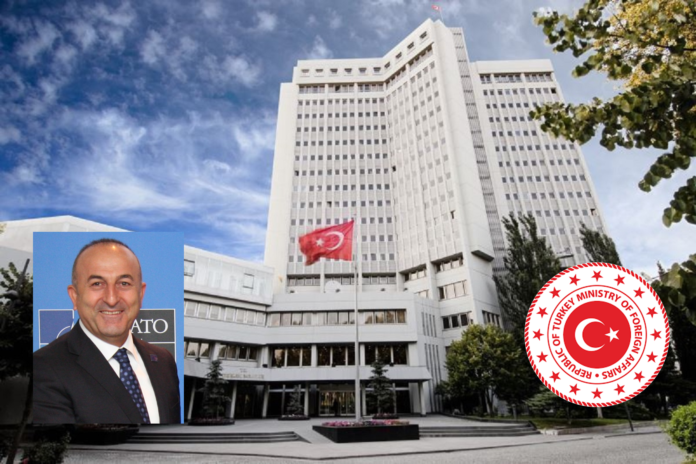Career diplomats who were purged from the Foreign Ministry by the Turkish government and subsequently reinstated by the courts will be employed in a research center if the foreign minister declines to reappoint them to their former positions, according to a regulation published in Turkey’s Official Gazette on Wednesday.
In the aftermath of a failed coup on July 15, 2016, the government declared a state of emergency and dismissed tens of thousands of public servants from various institutions using emergency decree-laws. The Ministry of Foreign Affairs was among the institutions that were hit the hardest by the purges. According to Deputy Foreign Minister Yavuz Selim Kıran, 550 career diplomats — around 30 percent of the Turkish diplomatic corps — had been dismissed as of May 2019.
Officials were dismissed and banned from public service with the claim that they were “a member of or have a connection to or are in communication with the structures, organizations, groups or terrorist organizations that are considered by the National Security Council [MGK] to pose a threat to the national security of the state.”
In May 2019 some 100 former diplomats were detained by the authorities for suspected links to the faith-based Gülen movement, accused by the government of orchestrating the abortive putsch. Following allegations of torture by the diplomats, the Ankara Bar Association conducted an investigation and said the victims’ statements “confirm that the individuals were subjected to blows, torture and ill-treatment.” The victims said they were forced to sign prepared statements.
The main targets of the purge were people perceived to be members of the movement, inspired by US-based cleric Fethullah Gülen. However, a much wider group of people has been targeted.
The Turkish government considers the Gülen movement a terrorist organization (Fetullahist Terrorist Organization, or FETÖ). The movement strongly denies involvement in the coup attempt or any terrorist activity. Following the allegations, Gülen called on the Turkish government to allow for an international investigation.
Although the newly published regulation stipulates the establishment of a research center, a closer look reveals that the center was not intended to provide support for the Foreign Ministry. In fact, the ministry already has such an organization, the Center for Strategic Research (SAM). According to its website SAM was established in 1995 “as a consultative body to provide Turkish foreign policy decision-makers with scholarly and scientific assessments of relevant issues, and reviews Turkish foreign policy with a futuristic perspective.”
The research center regulation was drafted in accordance with a law that gives the minister of foreign affairs the authority to employ purged diplomats who were reinstated by the courts or the Emergency Procedures Investigation Commission (OHAL Commission) in a research center instead of returning them to their old positions and ranks. The law does not provide any objective criteria as to when a diplomat can be fully reinstated, in essence giving the minister the authority to not fully implement the court decisions.
In Turkey, under normal conditions, the Law on Public Servants requires that disciplinary actions, including dismissal from public service, be recommended by a committee after hearing the employee’s defense. The decision must then be approved by a higher body within the relevant institution and can be challenged in the administrative court system.
But during the state of emergency, public servants were not even informed of accusations against them and were never asked to submit their defenses. The legal path for appeal in the cases was also closed with a decree. After warnings by the European Court of Human Rights (ECtHR) about a case overload of complainants from Turkey, the Turkish government established the OHAL Commission as an appeal mechanism for civil servants dismissed by decrees.
Following the end of the state of emergency, a similar regime was created with a temporary law that would be in effect for 36 months, until July 2021. According to this law, officials suspected of membership in or affiliation with entities deemed a threat to national security can be dismissed by the ministers upon the proposal of a disciplinary commission.















